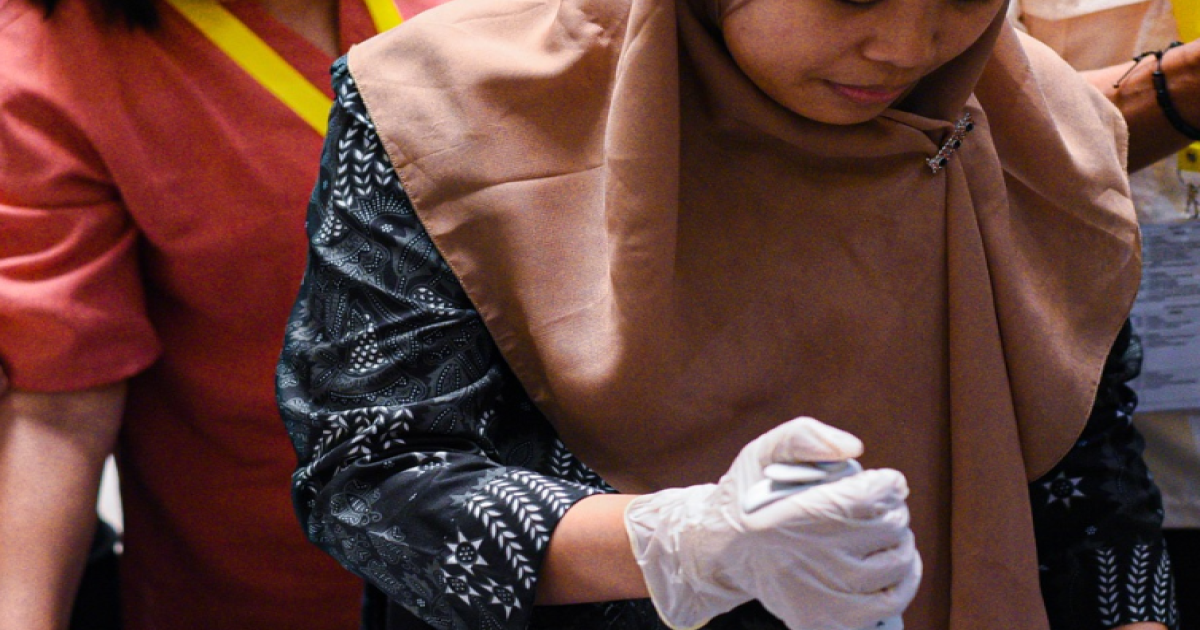WHO and European Union strengthen Indonesia’s health system for a healthier

Jakarta, 20 February 2024 – The World Health Organization (WHO) and European Union (EU) today announced the successful culmination of an initiative to support Indonesia’s emergency COVID-19 response, with a focus on building health system resilience and increasing access to essential health services, for a healthier, more health-secure tomorrow.
Funded by the EU, the three-year ‘Southeast Asia Health Pandemic Response and Preparedness’ project supported eight ASEAN countries to respond to the COVID-19 crisis, including Indonesia. The initiative enabled WHO and the Indonesian Ministry of Health to strengthen health system resilience and minimize disruptions of essential health services in the world’s fourth most populous country, with a focus on vulnerable and marginalized groups, leaving no one behind.
“The COVID-19 crisis has highlighted so many lessons but none more critical than the need for solidarity between countries and partners to protect health and well-being and strengthen emergency preparedness and response capacities,” said WHO Representative to Indonesia, Dr N. Paranietharan. “Since the beginning of the crisis the EU has been a true friend and an implacable champion not just of WHO but of the government and people of Indonesia.”
In addition to supporting health system strengthening, the initiative was crucial to establishing multi-stakeholder mechanisms such as intra-action reviews, which brought together key ministries, academic institutions and civil society organizations to strengthen Indonesia’s pandemic preparedness and response strategies, ensure alignment with international best practices, and promote whole-of-government, whole-of-society action for health.
The initiative also helped establish a national laboratory information management system and ensure that over 1000 laboratories in the country have the capacity to conduct PCR testing and genomic sequencing, which remains a critical priority. It empowered more than 900 healthcare professionals across Indonesia to maintain access to quality and essential health services in hospitals and primary health care centres (puskesmas), including for COVID-19 case management, maternal and child health, immunization, telemedicine, environmental health surveillance and emergency care.
“By improving Indonesia’s capacities for pandemic preparedness, Indonesia can better protect the health and well-being of its citizens, reduce the burden on its healthcare system, and lay a solid foundation for sustainable development,” stated EU Ambassador to Indonesia, H.E. Denis Chaibi. “The European Union’s funding underscores its commitment to improve pandemic prevention, preparedness, and response, and to deliver tangible results on the ground.”
The multi-year partnership between WHO and the EU is aligned with Indonesia’s national health transformation agenda, launched in 2022, and will provide lasting benefits, helping to prepare for and prevent future health crises and manage ongoing outbreaks of COVID-19, flu and other respiratory diseases.
WHO will continue to work with the Government of Indonesia to strengthen its laboratory network, enhance surveillance and intensify inter-sectoral coordination. This is in addition to ongoing efforts to improve integrated primary health care, tackle noncommunicable diseases and prevent and control antimicrobial resistance, while addressing cross-cutting challenges such as climate change, gender equality, human rights and disability inclusion.
Together with partners, beneficiaries, and the Government of Indonesia, WHO and the European Union are committed to building a healthier, safer and more resilient future for all Indonesians.
Our Product Lines
- Sphygmomanometer System
- High Pressure System
- Tourniquet System
- Conversion Kits
- Spare Parts
- Thermometers
